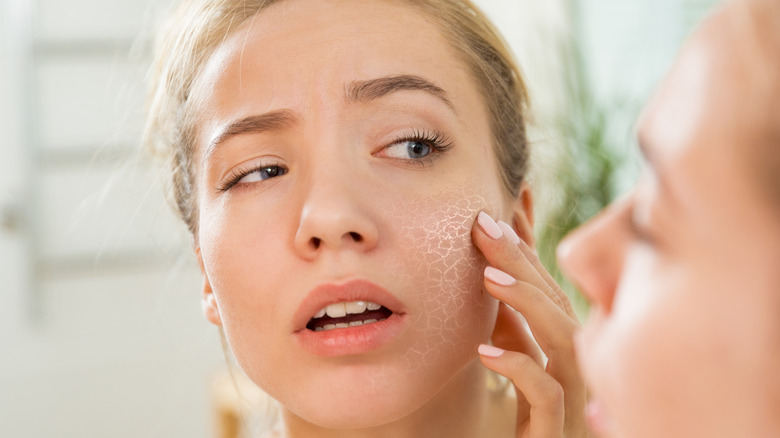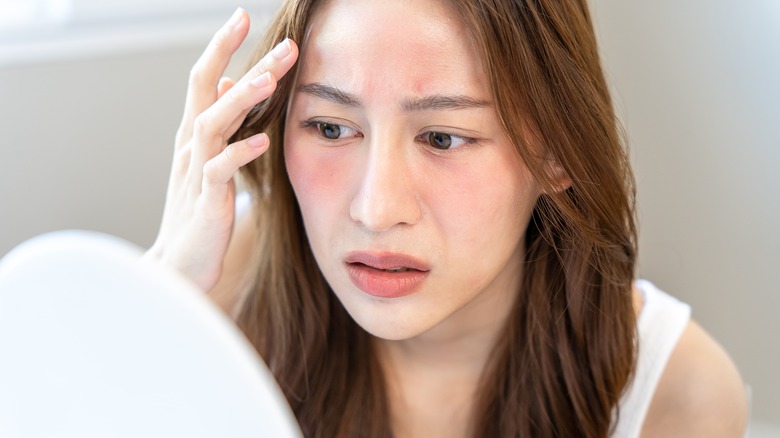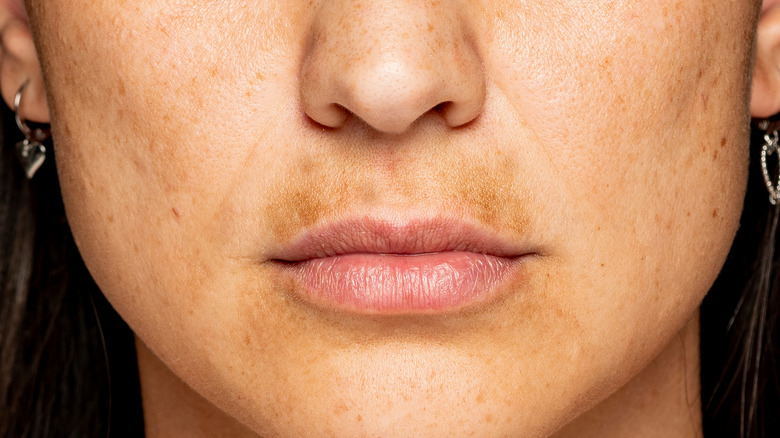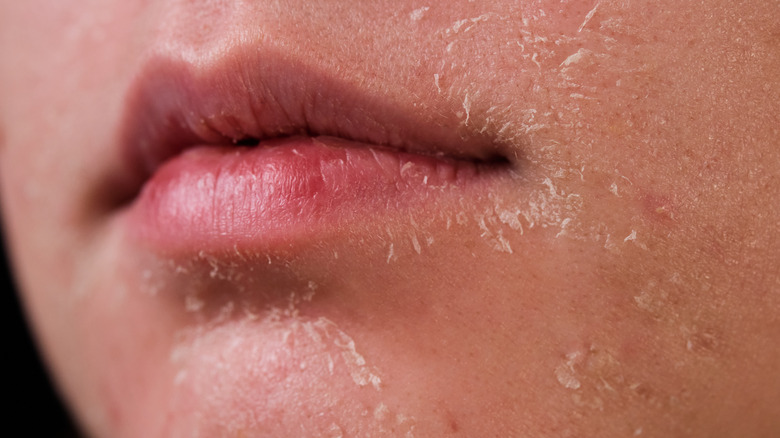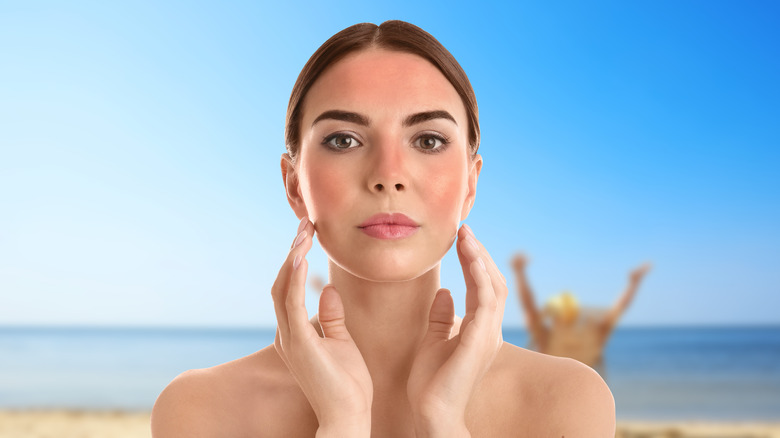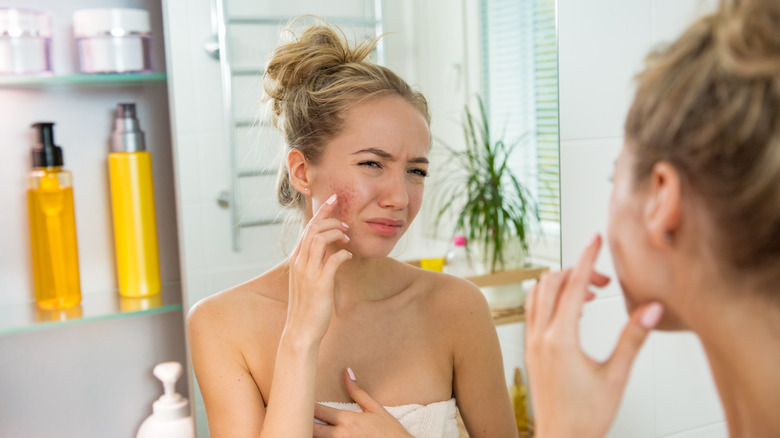The Tell-Tale Sign You Should Stop Using Retinol Right Away
Retinol is a skincare ingredient that has gained immense popularity over the years, and for good reason. A derivative of vitamin A, retinol is known for its ability to effectively reduce the appearance of fine lines, wrinkles, and hyperpigmentation. It also helps stimulate collagen production and increase skin cell turnover,resulting in a more radiant skin.
Aside from retinol's ability to improve the appearance of aging skin, it can be an effective aid in treating acne on both the face and the body. Retinol treats acne by unclogging pores, reducing inflammation, and regulating sebum production.While retinol does wonders for the skin, it's important to note that retinol can also cause skin irritation and sensitivity. It's pretty common for the skin to experience dryness, peeling and redness, especially when it's your first time to use it. If you're incorporating retinol correctly into your skin care and excessive skin irritation still persists then you might have to stop using it altogether. But how do you know if this supposed skincare holy grail is not for you?
Severe skin irritation
You might have to take a step back in case of a severe irritation occurs after applying retinol. If you experience excessive skin irritation, it may be a sign that your skin is too sensitive for retinol. One common reason why severe irritation happens is due to the excessive usage and it's one mistake to avoid when using retinol. Dr. Shereene Idriss, NYC-based Board Certified dermatologist, told Brides, "People are eager to start a new retinol and think more is more, but that is not the case—you have to be super careful when introducing it into your skincare routine."
The skin expert further added that it's important to pay attention to your skin days after use. She explained, "Overuse or incorrect use can be either using the product too often/in the wrong spots on your face or starting off with an intense formula that is too strong for your skin. Less is more with retinols and it's important to listen to your skin during the adjustment period." If you're experiencing severe irritation to the point that it's starting to be painful, then stop using the product immediately. It's best to consult with a dermatologist.
Skin discoloration
Retinol can cause unwanted side effects, including skin discoloration. Once you experience skin discoloration while using retinol, it's highly advised to stop using the product immediately. A retinol that's too strong for you causes hyperpigmentation or the darkening of the skin. People with darker skin tones have higher risks of experiencing skin discoloration from retinol.
Retinol has been shown to improve the appearance of dark spots by accelerating cell turnover. Another way retinol works in treating dark spots is by stimulating collagen production that results in increasing the skin cell turnover. "Collagen helps promote skin cell turnover, which helps peel and fade away dark spots," says Dr. Stacy Chimento, MD, a board-certified dermatologist based in Miami, Florida told Bustle.
Retinol might be a great tool for treating dark spots but it can also lead to skin discoloration. Skin discoloration can occur when the skin is sensitized to retinol, leading to inflammation and hyperpigmentation. "If the retinol you're using is too strong for your skin causing inflammation, darker skin tones may have a higher risk of discoloration, or hyperpigmentation, from the use of it," says Devika Icecreamwala, M.D., founder of Icecreamwala Dermatology in Berkeley, California.
Excessive flaking and peeling
As mentioned earlier, retinol works by promoting cell turnover, which can often lead to the shedding of dead skin cells. This shedding can result in flaking and peeling. The flaking and peeling is the skin's way of healing by getting rid of the damage. While it is expected for you to experience flaking and peeling when using retinol, if it becomes excessive, it may be a sign that the product is not suitable for you.
Flaking and peeling is an indication that retinol is doing what it's supposed to do. It only means that your dead skin cells are being replaced by a new and fresh layer of skin. This process might take place for about a month depending on your skin's reaction to the product. After the said period, if your skin is still constantly flaking and peeling, it could be an indication that your skin is not able to tolerate retinol. It's best to stop using retinol altogether and visit your dermatologist for further advice.
Excessive redness
Redness is a common side effect of using retinol, which might be more severe for those with sensitive skin. Due to the accelerated skin cell turn over, the skin cannot produce new skin cells fast enough which lead to the new skin cells being exposed before it's ready. This exposure causes the skin to be irritated and becomes red.
Don't fret when the redness occurs since it's an indication that your skin is getting accustomed to the product. "Eventually, the skin becomes more resilient to the irritation while still benefiting from the retinoids," says Sheel Desai Solomon, MD, a board-certified dermatologist with Preston Dermatology and Skin Surgery in Cary, North Carolina told Everyday Health in 2023.
A little redness in response to the new product can be normal, but too much redness might be a sign that retinol is too strong for your skin. Just like any other retinol side effects, slight redness should only last four to six weeks once it's been added to your regiment. Anything longer than might be a little concerning, as it might be a sign your skin is not getting accustomed to retinol.
Experiencing retinol burn
Retinol is a great product when used correctly, but will cause harm to your skin when not used properly. Overusing retinol's potent formula can cause irritation, commonly referred to as retinol burn. Retinol burn occurs when the skin becomes excessively dry and irritated, resulting in redness, peeling, flaking, and even scaly patches that can feel painful. This condition is often seen in individuals who use a high concentration of retinol without gradually building up to it or those who use it too frequently. Paying attention to the concentration of your retinol is important to achieving the best results.
Signs of retinol burn can be immediately seen within the next 24 hours of applying the product. The severity and length of time retinol burn will last on your skin can vary, and the visibility of the burn can last up to a week. Once you see signs of retinol burn, it is crucial to stop using the product immediately. Continuing to use retinol can exacerbate the burning and irritation, leading to further damage to the skin. Let your skin heal and consult your dermatologist for your next step.
